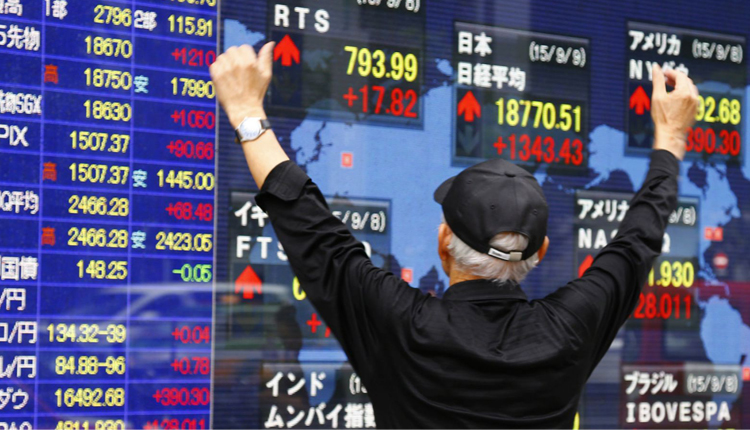Asian markets traded mixed on Wednesday despite an overnight rally on Wall Street as investors sifted through fresh uncertainties surrounding the U.K.’s withdrawal from the European Union.
Japan’s Nikkei 225 fell about 0.7 percent while the Topix index slipped 0.52 percent. In South Korea, the Kospi traded higher, up about 0.2 percent.
Greater China markets mostly fell, and Hong Kong’s Hang Seng Index was down 0.15 percent. The Shanghai composite was marginally lower by 0.05 percent, while the Shenzhen composite and Shenzhen component index were both hovering between positive and negative territory.
In Australia, the benchmark ASX 200 rose 0.21 percent as the heavily-weighted financial subindex added 0.6 percent.
Global markets received a boost on Tuesday, and analysts attributed the positive sentiment to China signaling more stimulus measures to come, including larger tax cuts, amid concerns of a slowdown in the world’s second-largest economy.
Recent economic data showed contractions in trade and factory activities in China, leading many to wonder if Beijing will be more aggressive with its measures to hold up the economy.
Hao Zhou, a senior emerging market economist for Asia at Commerzbank, said it’s likely that China will lower its growth target in the coming months.
“The most likely case is China will set a growth target range for the coming year- I would say maybe 6 percent to 6.5 percent range. So, basically, (it) gives the government more flexibility in the coming year,” he told CNBC’s “Street Signs ” on Wednesday. Hao explained cuts in corporate taxes would have a larger impact on the economy than reducing personal income tax.
For its part, China recently said it would grant more tax breaks to small firms.
May voted down on Brexit plan
Prime Minister Theresa May’s plan on how Britain should exit the European Union was overwhelmingly voted down in the House of Commons, which is the U.K.’s lower house of parliament. Though the move was widely expected, reports suggested it was the largest defeat for a sitting government in U.K. political history.
The British pound traded at $1.2841 on Wednesday morning at 11:00 a.m. HK/SIN, recovering from a sharp decline below $1.2740 overnight.
“Sterling rallied following the defeat of the withdrawal agreement due to strong cross-party support to prevent a no deal from occurring on 29 March,” analysts at ANZ Research wrote in a morning note.
The British government now has just three working days to map out a new plan of action. But the ANZ analysts noted it is “unlikely to achieve much, given the level of opposition to the withdrawal agreement, unless there is a U-turn from Brussels.” They added that gains in the pound is “limited by the prevailing uncertainty.”
Meanwhile, Steven Englander, global head of G10 foreign exchange research at Standard Chartered Bank, told CNBC that the pound is not hugely at risk as long as Britain is able to avoid a change of government and also a scenario where it exits the EU without a deal, which is defined as a hard Brexit.
“I think that the market is thinking that the risks of a hard Brexit have been greatly reduced,” he told CNBC’s “Squawk Box ” Wednesday morning.
“I think if we end up with say what most in the market … expect now, and from comments in parliament, that we’ll have some sort of extension and then, possibly, a referendum, possibly an effort to cobble together a new deal. I think sterling could find a little bit of support,” Englander added.
Elsewhere, the dollar index, which measures the greenback against a basket of its peers, last traded at 96.009. The Japanese yen, considered a safe-haven asset, fetched 108.49 to the dollar while the Australian dollar traded at $0.7198.
Source: CNBC


